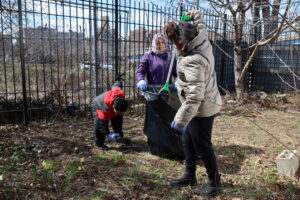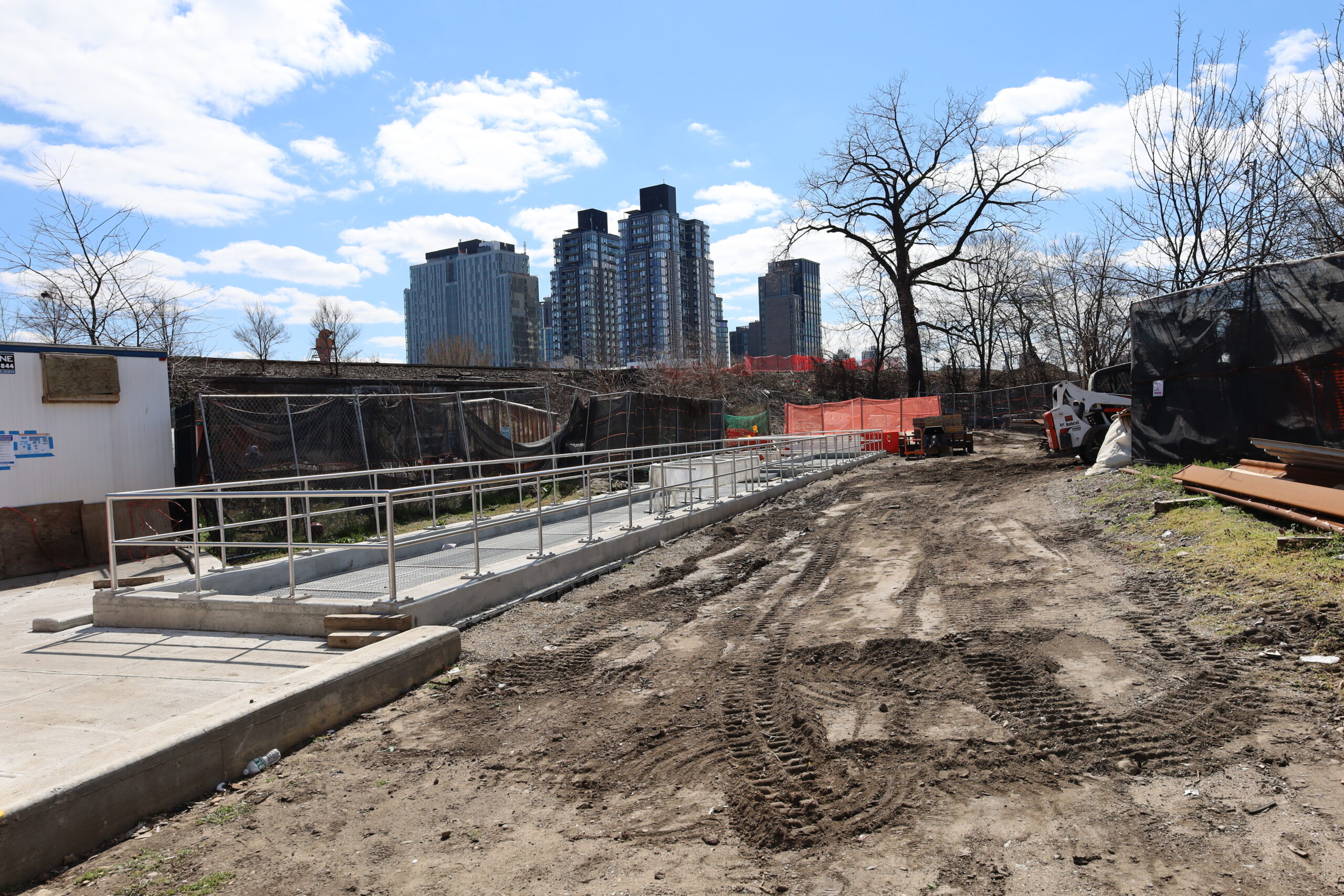On a cold and windy Sunday afternoon, Erica Pantoja came out to La Finca del Sur’s Waking Up the Farm event with her kids, Faith, 12, and Izaiah, 8. Their task was to help clean as others tilled the soil in preparation for the farm’s official reopening, scheduled for this April.
Pantoja even made a game out of it, “Whoever picks up the most garbage gets a prize,” she told her children. They quickly set off in a frenzy collecting pieces of paper, plastic bottles and other debris, then rushed back to their mother, who was standing by with a large black garbage bag.
They were among dozens of volunteers who showed up for the clean-up event. “This is our community and it’s important to keep it clean,” said Pantoja. Asked why it was important to be out cleaning that day, her daughter Faith replied, “To save the earth.” The farm supplies the tools necessary for volunteers as well as snacks and bottles of water.
Established in 2009 by five women of color, along with hands-on co-founder, Nancy Ortiz and her husband Demetrio Surun, La Finca del Sur (The farm of the south) is a working farm located at 110 E. 138th St in the South Bronx. It caters to farmers of the area and grows mostly greens as well as tomato, eggplant, onions, herbs and more.
Most recently, the farm adopted a bee colony and is producing its own honey. La Finca also holds bi-weekly farm stands and pop-ups. While they do not have an interactive website, Ortiz stressed that people can reach out on their Instagram page for updates on events.
The farm is doing its best amidst a tremendous disruption at the hands of the Mass Transportation Authority. In April 2021, the MTA split the farm in half for “the reconstruction of subway vents and installation of mechanical closure devices – necessary for flood mitigation,” according to a spokesperson for the MTA. The total budget for the project is upwards of $8 million. The separation forces those working in La Finca to exit, go around and re-enter in order to get to the other side of the approximately two-acre farm. However, the two sides will be joined by a pathway when construction is completed. “From the beginning we very strongly insisted that we be involved in the meetings and the planning and be kept abreast of what was going to happen and I think for the most part that has happened,” said Ortiz.
Looking in from the outside, one sees metal fencing and orange plastic netting with blockades and empty land being constructed upon. But despite the ramshackled appearance, Ortiz said that she believes the construction has deterred thefts that have been ongoing since 2019, which have resulted in upwards of $10,000 worth of stolen items such as generators, tools, routers and more. However, the farm experienced their latest break-in just this March.
The farm leaves large containers outside that normally store tools, but Surun says, “We can’t leave anything there because they steal it.” So he takes the tools home with him. The farm is flanked by the Metro-North railroad to the east and the Major Deegan Expressway to the west. The lack of residential buildings in the vicinity makes it an easy target for theft.

The farm suffers from a lack of hands. “We want to attract more young people so they can take over,” said Surun, who has been retired for five years and would like to enjoy his time off with his family. Ortiz and Surun are the only original founders left. At the moment, the farm relies on volunteers who give their time without a dedicated schedule. Surun understands that most people have to work and support their families.
To maintain the farm, the group needs a $10,000 to $15,000 grant to hire part-time employees, Surun said.
Through the COVID-19 pandemic the farm continued to operate and supplied produce to local relief efforts in the community. Even when the pandemic subsided and the farm resumed charging for fruits and vegetables based on the ability to pay.
“We charge according to the area. We’re not going to be charging $7 for a bunch of collards, even though they’re organically grown,”” said Ortiz. “If somebody comes to us and says, ‘listen I don’t have the money for this,’ we say, ‘well, what can you give?’” said Ortiz.
The MTA assumes a completion date of June 30, 2023.

